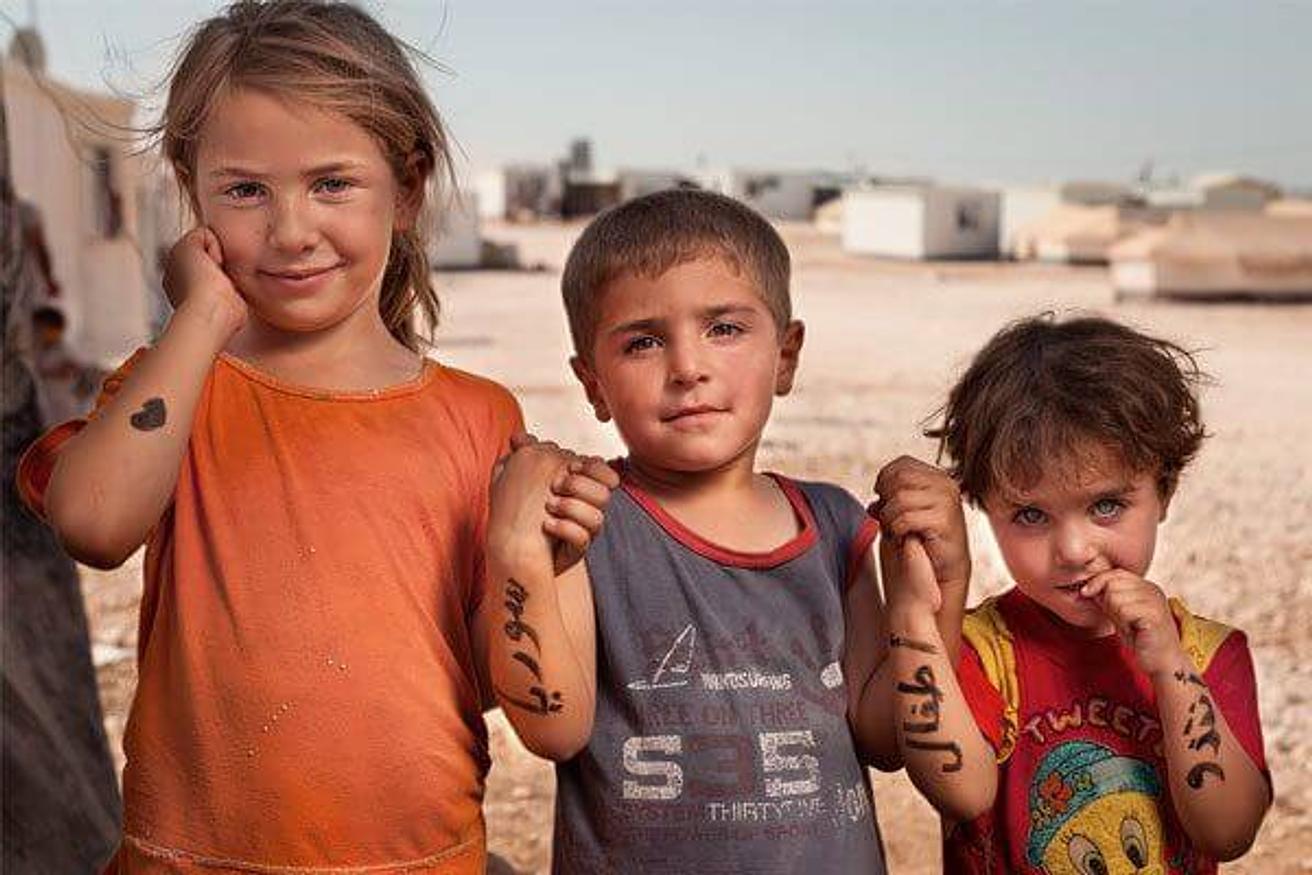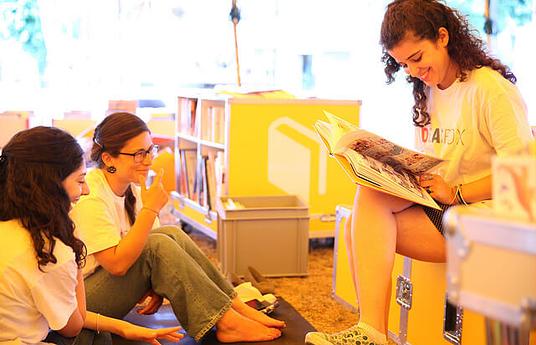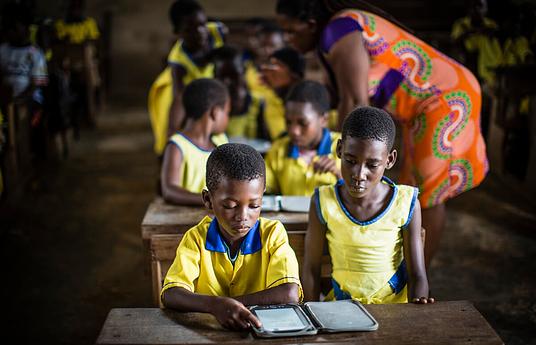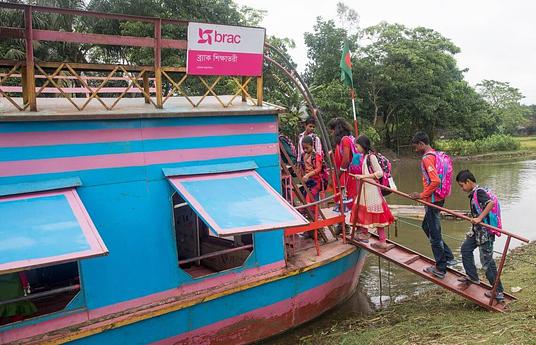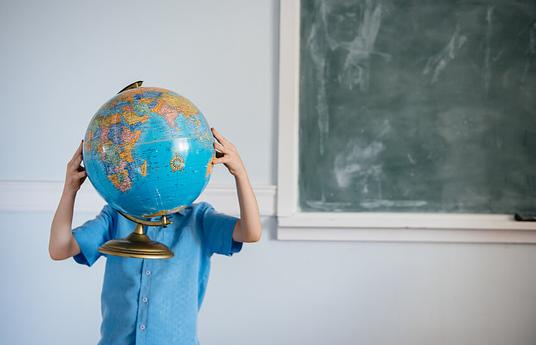The world is witnessing unprecedented levels of displacement. The UNHCR puts the figures at 65.6 million forcibly displaced people, of whom 22.5 million are refugees. Shockingly, over half of the world’s refugees are children. Referred to as the ‘lost generation’, many of these children are having their futures stifled and their hopes crushed as they find themselves trapped in a situation where school is an impossible dream.
Every child has a right to an education, but complex, interwoven issues, including language barriers, lack of resources, poverty and child labour, too often impede a refugee child's access to school. As a tool to combat poverty, promote health and wellbeing, and provide foundations for future success, education is a vital lifeline for refugee children and their families. It's a chance to gain crucial knowledge and life skills just like any other child. Without it, refugee children face an uncertain future.
Education also serves a critical function for society as a whole, as access to education can promote democracy, peace, tolerance and economic growth. As Filippo Grandi, UN High Commissioner for Refugees, explains - “The education of these young people is crucial to the peaceful and sustainable development of the countries that have welcomed them and to their homes when they are able to return. Yet compared to other children and adolescents around the world, the gap in opportunity for refugees is growing ever wider.”
It goes without saying that refugee children encounter various disruptions and barriers to receiving an adequate education, but many would be shocked at the scale of the issue. In 2016, 3.5 million refugee children did not attend school at all. Whilst the situation is gradually improving, partly as some refugees make their way to Europe (where education is compulsory) almost one in three refugees live in low-income countries that are simply unable to provide facilities for them. There are around 1.3 million Syrians in Jordan, a country of 6.6 million, whose resources have been stretched by the scale of the ongoing crisis. Despite efforts to improve the situation, it is estimated that 40% of Syrian children there are out of school.
So when school isn’t an option , how can children learn fundamental skills like reading? Worldreader, a global nonprofit, is determined that every child should have access to the transformative power of reading. Leveraging high rates of adult literacy and mobile phone access in conflict-impacted communities in Jordan, Worldreader is able to empower parents and strengthen the role they are able to play in their child’s education - using mobile phones.
Following the success of the Read to Kids program in India, Worldreader have expanded their efforts to Jordan in a new 2 year project which seeks to promote literacy skills and empower parents with the tools to become their child’s first teacher.
Families of Syrian and vulnerable Jordanian children aged 0-12 can simply download the free app to have access to a library of culturally relevant, high quality children’s stories to read both to and with their children. The app encourages the families to find the joy and healing in reading together. To this end, the app contains 250 quality Arabic children’s stories, as well as a collection of psychosocial content, designed by experts to promote wellbeing, explore emotions and begin healing from trauma.
Access to school isn’t just about learning to read. Well funded schools are able to provide facilities, like a physical library, a space for play and materials for arts and crafts. As imaginative play is central to a child’s development and access to culture is a key part of forming personal identity - the lack of these opportunities for refugee children is worrying. Thankfully, Ideas Box is changing this narrative.
This revolutionary portable media centre, run by French organization Libraries Without Borders (Bibliothèques Sans Frontières), brings safe access to education, culture and information to people in humanitarian situations. The concept is both strikingly simple and awe-inspiringly ambitious. Ideas Boxes are transported to refugee camps (and other underserved communities) where they can be set up in a mere 20 minutes.
Each box provides the camp with a satellite internet connection, a digital server and power generator, which can be used to run the 25 tablets, the cameras and the large HD screen which can serve as a cinema. As well as all of this technology, Ideas Box contains integrated furniture and provides arts and crafts material, a stage for music and drama, board games and books. Each Ideas Box is customized by experts in collaboration with partner organizations and community members to ensure it reflects the unique cultural, geographic and linguistic needs of the people living there.
Internet access provides an abundance of independent learning opportunities and a lifeline to the outside world. But why the focus on arts and culture? In an Ideas Box video, a young man shares his experiences of the camp in which he lives having fled violence in the Congo. “We pass our days mostly at home, or we wander in the camp with nothing to do”, he explains, “we are isolated from the world, what we miss the most is culture”.
Once the basic needs of displaced people are met, such as shelter, hygiene and food, initiatives like Ideas Box can be a vital tool to combat the boredom and frustration of living in a camp, by providing a community hub, learning resources and outlets for creative expression. Culture is a powerful tool for healing and can promote peace, reconciliation and tolerance. “When one has lost everything”, says creator, Philippe Starck, “the one thing that cannot be taken away is the ability to dream.”
These incredible innovations begin to disrupt the narrative of a ‘lost generation’ by bringing education, access to culture and a sense of hope to thousands of young refugees, often in the world’s most challenging situations. Worldreader now hopes to change the story for 50,000 Syrian and vulnerable Jordanian families, while an Ideas Box case study in Bwagiriza camp, Burundi, showed academic attainment increased by 23% more than students in a classical school setting. Children also showed consistently more curiosity, engagement and improvement in psychosocial well-being, including reduced stress and increased resilience. While there is still much to be done globally to bring high quality education to every refugee child, the actions of organizations like these offer a glimmer of hope - education doesn’t have to be a dream.
Discover more about the incredible work of Worldreader and Ideas Box by visiting their innovation pages.
